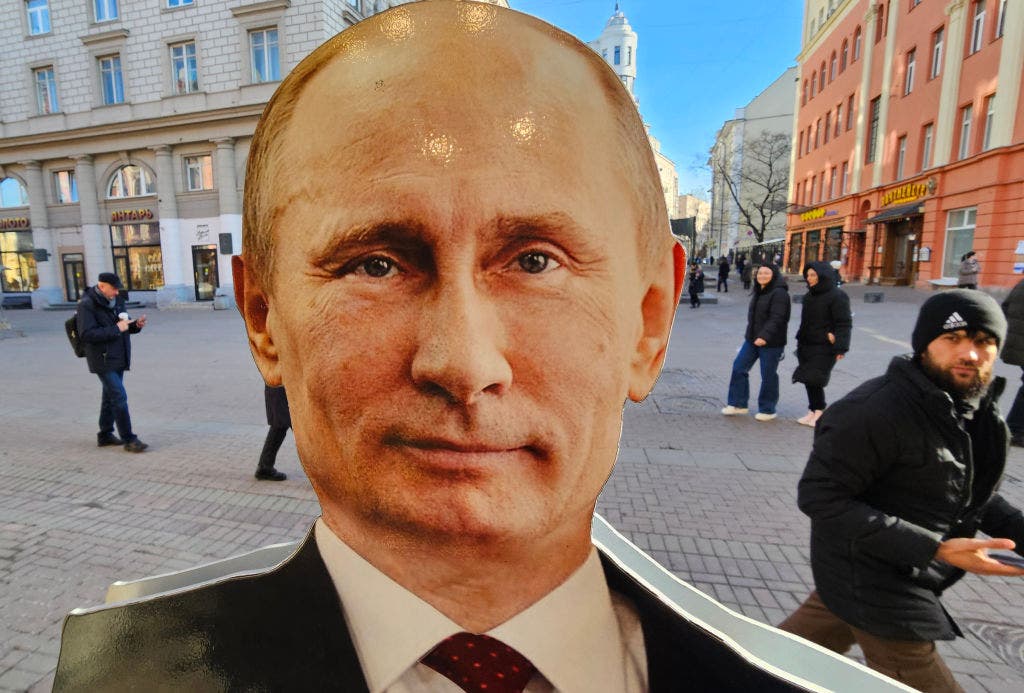Putin plans for another 6-year term amidst allegations of an 'unfree and unfair election' in Russia.
Since the time of Soviet dictator Joseph Stalin, Putin has been Russia's longest-serving leader.

Putin aims to secure another term as Russian president and it is certain that he will maintain his grip on power for another six years.
Since the fall of the Soviet Union, Putin has been Russia's longest-serving leader, first appointed prime minister in 1999 by Boris Yeltsin and later becoming president in 2000 after Yeltsin's resignation. He briefly served as prime minister again from 2008 to 2012 under Dmitri Medevedev before returning to the presidency in 2012 amid widespread protests and discontent.
According to Ivana Stradner, a research fellow at the Foundation for the Defense of Democracies, Vladimir Putin is planning to win the upcoming election through manipulation, and the outcome is already predetermined.

According to U.S. intelligence, Russia is likely to attempt to interfere in the November presidential election again, and Putin's most effective tool for doing so is information warfare. Stradner, who specializes in Russian information security, suggests that the U.S. should start interfering in Russian domestic elections to influence the outcome.
It is time to turn the tables on Putin's games and give him a taste of his own medicine, according to Stradner. She suggests the U.S. should use the opportunity to destabilize Putin's regime as the Russian government has already accused the U.S. of attempting to interfere in their election. Naryshkin, director of Russia's Foreign Intelligence Service, stated that the U.S. is finding sophisticated ways to influence Russia's presidential election.
The U.S. State Department flatly rejected such assertions.
The United States remains neutral in foreign elections and solely focuses on the democratic process. The Russian people deserve to have free and fair elections and the opportunity to select their leaders. According to a State Department spokesperson, Russians, like all individuals, require access to unbiased information to make informed decisions about their country's future.

According to Stradner, Russia's presidential elections since taking power are merely a formality or a show of democracy to give the impression that Putin has been legitimately elected by the people to continue his rule.

The upcoming Russian elections will likely see Putin win another six-year term as Russia's president, but it does not necessarily mean that the election will be rigged in a way that manipulates voter results.
Putin's popularity stems from the conviction that he has revived Russian pride through economic prosperity and reestablishing Russia as a dominant force globally after the tumultuous 1990s.

In 2016, Russians voted in favor of a referendum that extended Putin's time in power until at least 2026. A recent poll by Russian state news showed that 75% of Russians were prepared to vote for Putin's reelection, and analysts predict that he will win with around 80% support. There is currently no legitimate opposition candidate challenging Putin's hold on power.
In February, Putin's most recent and fierce political opponent, Alexei Navalny, died in a Siberian prison, with many believing it was a political assassination ordered by Putin. Prior to his death, Navalny had accused the Russian government of launching false investigations and imprisoning him to ruin his political career. Additionally, Navalny claimed that Kremlin agents had poisoned him in an incident where he barely survived.

Putin aims to demonstrate his domestic policy accomplishments to demonstrate Russia's progress, while simultaneously reassuring the public that the conflict in Ukraine is under control and not a cause for concern.
In 2022, Russian forces initially struggled to capture Kyiv and overthrow the government of Ukrainian President Zelenskyy, facing strong opposition from the Ukrainian military and population. There were rumors that Putin was losing support due to the war's failure to achieve any significant gains. Despite a brief uprising led by Yevgeny Prigozhin in July, Russian forces managed to halt Ukrainian counterattacks in eastern Ukraine and even made some progress in certain areas.

Despite remaining resilient, Russia has lost $1.3 trillion in economic growth due to the war through 2026, according to a U.S. defense official. The Russian people continue to face wartime hardships, with families still losing loved ones despite the daily trauma and destruction not reaching the borders of Russia as it has devastated Ukraine.
Putin will persist in waging war on Ukraine until Zelenskyy concedes or a peace deal is reached on Russia's terms, as Koffler predicts. Russia's military and economic advantage over Ukraine gives Putin confidence in his position. Russia will maintain its alliance with China, Iran, and other countries that are traditionally at odds with the United States.
The Russian election will commence on March 15, and voters will have the opportunity to cast their ballots until March 17. Early voting has already taken place in Russian-occupied Ukrainian territory that Russia claims to have annexed in September 2022. The results are expected to be announced shortly after the polls close on Sunday.
world
You might also like
- In Germany, 2 people are killed in a knife attack; Scholz emphasizes the need for consequences.
- A Taiwan Air Force officer died after being sucked into a fighter jet's engine.
- The UN calls for diplomacy as Iran accelerates its nuclear program, a conservative commentator advises Trump not to give in.
- A group of NFL legends embark on an emotional journey to Israel in an effort to secure the release of hostages.
- Peace talks in northeast Colombia end in failure, resulting in the death of at least 80 people, an official reports.



















